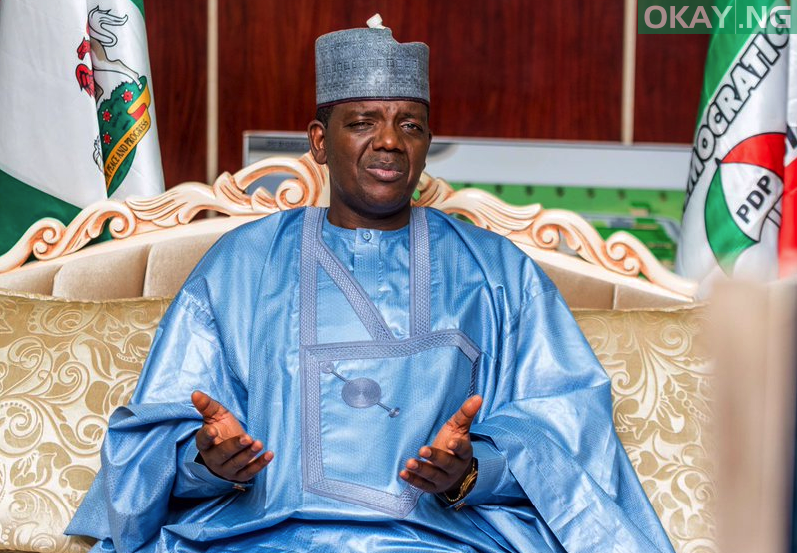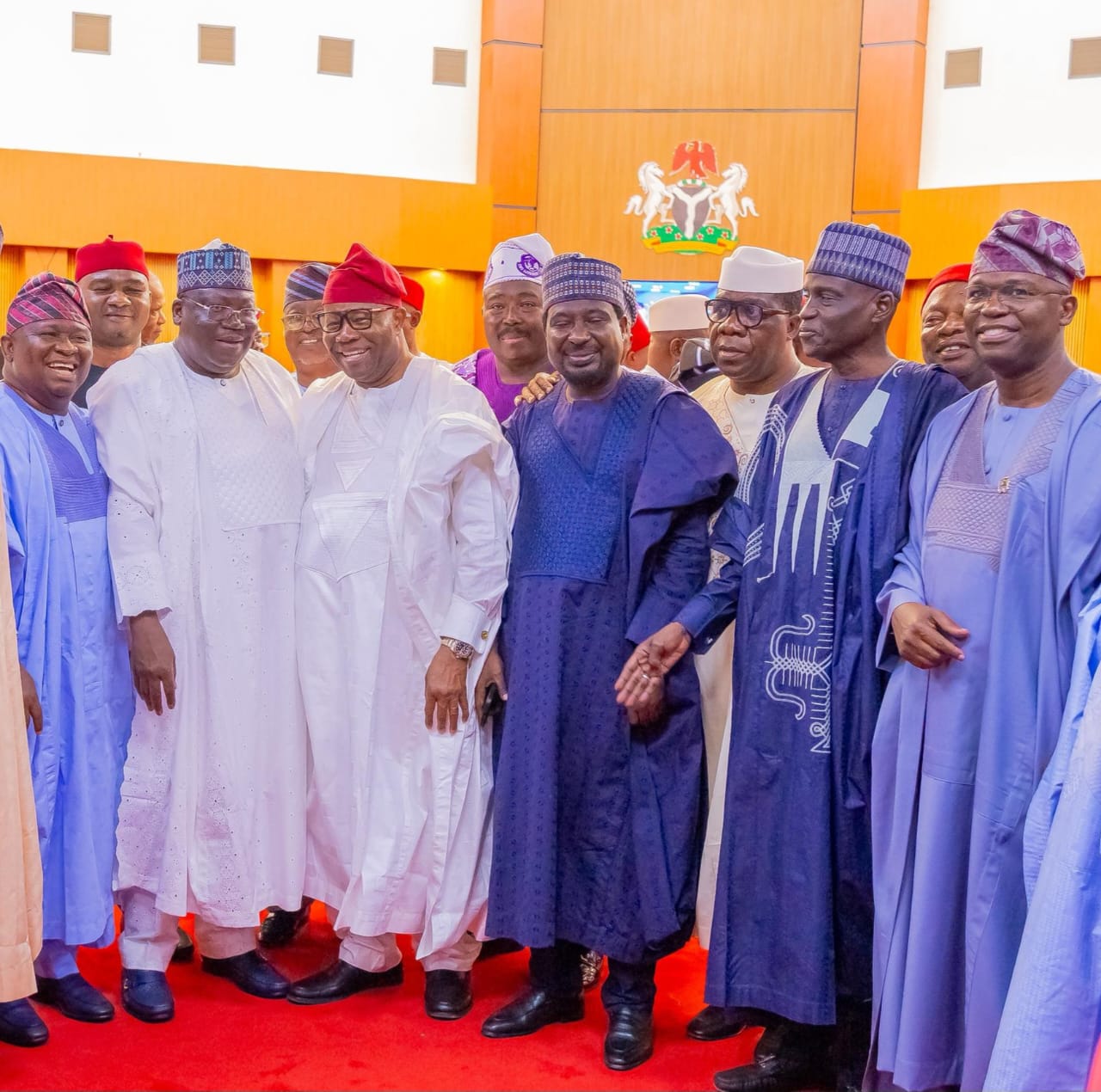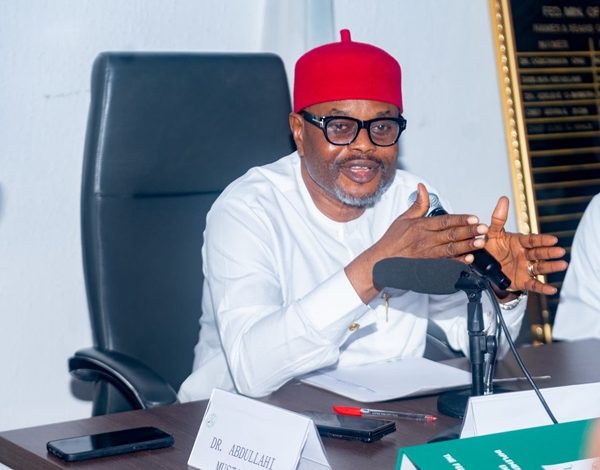Uncategorized
Strengthening Global Partnerships: Takeaways from Dr. Bello Matawalle’s Visit to Saudi Arabia

In an era where terrorism and transnational crime remain pervasive global threats, Nigeria is taking a proactive stance against insecurity. The Honourable Minister of State for Defence, Dr. Bello Mohammed Matawalle MON, recently underscored the country’s commitment with a strategic visit to Saudi Arabia. The visit, centered on engagements with the Islamic Military Counter Terrorism Coalition (IMCTC), marked a crucial step in reinforcing Nigeria’s role in global counterterrorism efforts and securing international cooperation in the fight against insecurity.
As the world grapples with heightened terrorist activities, Nigeria has made notable strides in combatting insurgency and criminality. Recent military operations have significantly degraded threats posed by Boko Haram, ISWAP, and banditry in Northern Nigeria. Yet, sustaining these gains requires collaboration beyond national borders. Dr. Matawalle’s visit comes at a time when global partnerships are increasingly pivotal to dismantling terrorism networks and addressing the root causes of insecurity.
The IMCTC, headquartered in Riyadh, Saudi Arabia, is a multilateral coalition of 41 member states dedicated to combating terrorism. Since its inception in 2015, the coalition has focused on ideological, media, financial, and military dimensions of counterterrorism. Its initiatives include training programs, intelligence sharing, and fostering international cooperation, making it an invaluable ally for Nigeria.
The IMCTC’s achievements range from capacity-building programs to comprehensive research outputs that raise awareness of extremist threats. For Nigeria, being part of this coalition means access to cutting-edge technologies, modern training, and an expansive intelligence network—tools essential for eradicating insecurity.
During his visit to the IMCTC headquarters, Dr. Matawalle held high-level discussions with Major General Mohammed bin Saeed Al-Moghedi, the coalition’s Secretary-General. The minister expressed Nigeria’s gratitude for the training programs extended to the Nigerian Armed Forces, which have significantly enhanced their counterterrorism capabilities. He called for periodic training and greater support in areas such as forensic expertise and intelligence sharing.
Dr. Matawalle emphasized the importance of localizing modern technologies to strengthen Nigeria’s armed forces, a sentiment echoed during his discussions on bilateral military cooperation with Saudi officials. The minister also highlighted Nigeria’s plans to nominate delegates for secondment to the IMCTC, further deepening ties and enhancing collaboration.
The visit reaffirms Nigeria’s commitment to contributing resources to the coalition’s operations, ensuring its sustainability and effectiveness. Beyond immediate military benefits, these engagements signify a broader vision: positioning Nigeria as a regional leader in counterterrorism and a model for African-Arab collaboration.
Dr. Matawalle’s proactive approach aligns with his record of delivering results. His leadership recently spearheaded operations that neutralized key bandit leaders in Northern Nigeria, showcasing a combination of strategy, community collaboration, and international partnership.
Dr. Bello Matawalle’s visit to Saudi Arabia not only spotlighted Nigeria’s resolve to combat terrorism but also underscored the importance of global alliances in addressing shared challenges. By fostering closer ties with the IMCTC and other partners, Nigeria is poised to strengthen its military capabilities, ensure long-term stability, and contribute meaningfully to global security.
As the fight against insecurity continues, the minister’s efforts symbolize a crucial blend of diplomacy and military strategy, reaffirming Nigeria’s role as a key player in the global counterterrorism landscape.
Nathaniel Adoji is a public commentator and researcher.
Uncategorized
London Property Dispute Exposes Alleged Corruption, Forgery by Nigerian Politician and Lawyer

By Hassan Taiye
A recent judgment by the UK’s First-tier Tribunal (Property Chamber) has shed light on a complex web of alleged corruption and forgery involving a Nigerian politician and a senior lawyer. The case revolves around a disputed property in North London, valued at 79 Randall Avenue.
The property was purchased in 1993 under the name “Tali Shani,” which is allegedly an alias for late General Jeremiah Useni, a powerful member of the Abacha regime. Chief Mike Ozekhome, SAN, claimed the property was gifted to him by “Mr. Tali Shani” in 2021 as payment for legal services. However, the tribunal dismissed this claim, describing it as “fabricated” and “fraudulent.”
The tribunal’s ruling highlights the alleged involvement of Ozekhome and his associates in fabricating documents, including a Nigerian passport, National Identification Number (NIN), and Tax Identification Number (TIN). The NIN was reportedly created remotely from Monaco using a non-compliant photograph and bypassing biometric requirements ¹.
The Human and Environmental Development Agenda (HEDA Resource Centre) has petitioned the Independent Corrupt Practices and Other Related Offences Commission (ICPC) to investigate Ozekhome and others over alleged fraud, forgery, and unlawful attempt to acquire the London property. The ICPC has launched an investigation, and the Attorney-General of the Federation (AGF) has also taken notice of the case ²
Chief Mike Ozekhome, SAN Senior lawyer accused of forgery and attempting to acquire the property through fraudulent means.
General Jeremiah Useni Late Nigerian General allegedly behind the purchase of the property under the alias “Tali Shani.”
Osilama Ozekhome*: Ozekhome’s son, implicated in the alleged forgery and fraud.
Uncategorized
photo

L-r Senate Committee Chairman on Appropriation, Solomon Adeola; Senate Deputy Whip, Onyekachi Nweboyin; Former Senate President, Ahmad Lawan; President of the Senate, Godswill Akpabio; Senator Sharafadeen Ali; Deputy Senate President, Jibrin Barau; Senate Leader, Opeyemi Bamidele; Senate Whip Tahir Monguno and Senate Committee Chairman on Financial Institutions, Tokunbo Abiru, after resumption of plenary yesterday. Photo: Senate President’s Office
Uncategorized
BREAKING: Tinubu’s Minister, Uche Nnaji, Resigns Amid Certificate Forgery Scandal

By: Fabian Apechihin
The Minister of Innovation, Science and Technology, Uche Nnaji, has resigned from President Bola Ahmed Tinubu’s cabinet amid a growing controversy surrounding his academic credentials.
Presidential spokesman Bayo Onanuga confirmed Nnaji’s resignation in a statement issued late Tuesday.
Nnaji’s exit follows mounting allegations that his academic certificates were forged. Investigations revealed that the University of Nigeria, Nsukka (UNN), disowned the Bachelor of Science degree he claimed to possess, stating that he never completed his studies at the institution and was therefore not issued any certificate.
According to UNN Vice-Chancellor Prof. Simon U. Ortuanya, Nnaji was admitted in 1981 but failed to meet the requirements for graduation.
In a related development, the National Youth Service Corps (NYSC) reportedly disowned the certificate of national service presented by Nnaji, describing it as fake.
His resignation marks the latest in a series of controversies to hit the Tinubu administration over questions of integrity and accountability among public officials.
-

 Uncategorized5 years ago
Uncategorized5 years agoFG, states urged to harness flooding for ranching, others with technology – Agbaje
-

 Headlines10 years ago
Headlines10 years agoBreaking: EFCC seals Borno House of Assembly, as Hon members take to their heels
-

 News11 years ago
News11 years agoNigeria Security Operatives Stage Manhunt For Homosexual Perpetrator
-

 News9 years ago
News9 years agoHow 21-year-old Girl fled community over accusation of lesbianism
-

 News10 years ago
News10 years agoYobe Gov Moves Against Deputy
-

 Opinion6 years ago
Opinion6 years ago7 signs she has friend zoned you
-
Technology4 years ago
Online job placement company headhunts women
-

 Headlines9 years ago
Headlines9 years agoBorno Dep Gov Abducts Another Church Leader





